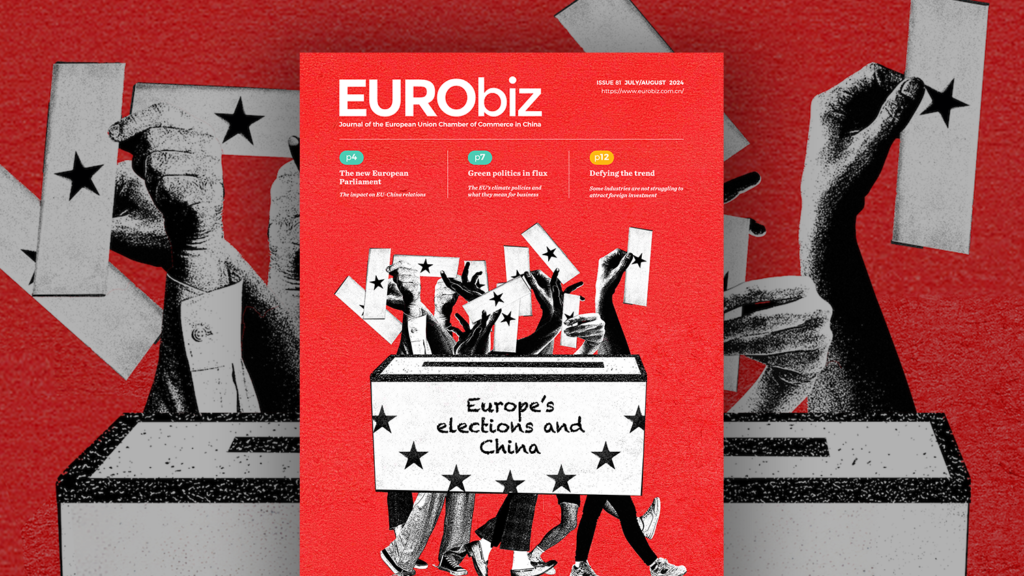
In recent years, the European Union (EU)-China relationship has produced an astonishing number of issues that have raised concerns and heightened risks for business. In 2019, the EU called China: “simultaneously a cooperation partner with whom the EU has closely aligned objectives, a negotiating partner, with whom the EU needs to find a balance of interests, an economic competitor in pursuit of technological leadership, and a systemic rival promoting alternative models of governance.”[1]

The sharpening tone was a precursor to an increasingly assertive approach that resulted in the creation of a set of trade instruments. Although these instruments—including the investment screening mechanism, the International Procurement Instrument (IPI) and the anti-coercion instrument—have not necessarily been developed specifically for China, they are designed to protect the EU single market against distortions, push for reciprocal treatment and increase market access for EU companies in third countries. Therefore, the fact that these tools are beginning to be used in connection with China should not come as a surprise.
From the second half of 2023 onward, the EU initiated a series of trade investigations into Chinese green technology imports. The most prominent was the anti-subsidy investigation into companies in China exporting passenger electric vehicles to the EU. The subsequent announcement of provisional countervailing duties underlined the urgency of finding solutions to the significant imbalances in the trade relationship between Europe and China, particularly when such imbalances arise from factors not reconcilable with the principles of free and fair trade.
For its part, China has also launched probes into products from the EU, which were widely seen as tit-for-tat responses.[2] On 10th July, these moves culminated in an announcement by the Ministry of Commerce (MOFCOM) of an investigation into the EU’s probes of Chinese companies under the bloc’s Foreign Subsidies Regulation.
While trade tensions are mounting, political ties between the EU and China are also at a “difficult moment”[3] as China’s growing relationship with Russia is casting doubt in Europe on China’s position on the Ukraine war and its regard for Europe’s security concerns.
This year will likely see significant political change, with the recently concluded European Parliament elections and presidential elections in the United States due in November. These changes may provide a window of opportunity to find a new balance in the EU-China relationship. However, the bloc will be looking for signs that China is taking action to address security concerns and trade imbalances, as well as a host of long-term business challenges.
The European Chamber will continue to act as a bridge between industry
and government, providing feedback from our members to highlight areas in which
China can further optimise its business environment for foreign investment. We
remain confident that the key to unlocking the potential of the EU-China
relationship lies in continued dialogue on existing issues and cooperation in
areas of mutual interest.
[1] Commission reviews relations with China, proposes 10 actions,European Commission, 12th March 2019, viewed 11th July 2024, <https://ec.europa.eu/commission/presscorner/detail/en/IP_19_1605>
[2] On 5th January 2024, China’s Ministry of Commerce (MOFCOM) announced an anti-dumping probe into imports of brandy from the EU. On 17th June 2024, the MOFCOM launched an anti-dumping probe into EU pork and pork byproducts.
[3] On 7th July 2024, Jorge Toledo, EU ambassador to China described EU-China ties as being at “a difficult moment”. Sim, D, China making it ‘very difficult’ for EU to deepen ties: ambassador Jorge Toledo, SCMP, 7th July 2024, viewed 10th July 2024, <https://www.scmp.com/news/china/diplomacy/article/3269505/china-making-it-very-difficult-eu-deepen-ties-ambassador-jorge-toledo>


Recent Comments